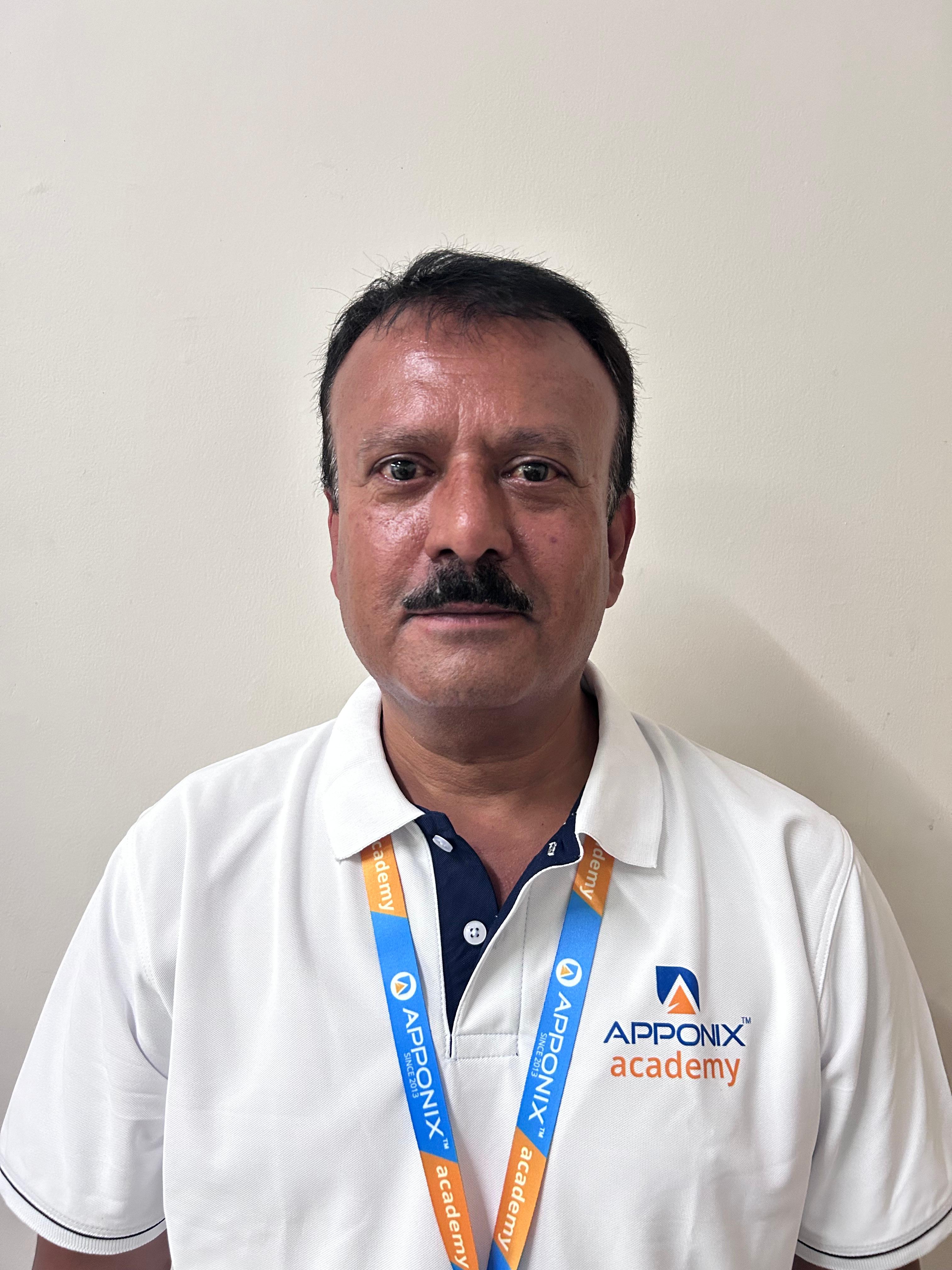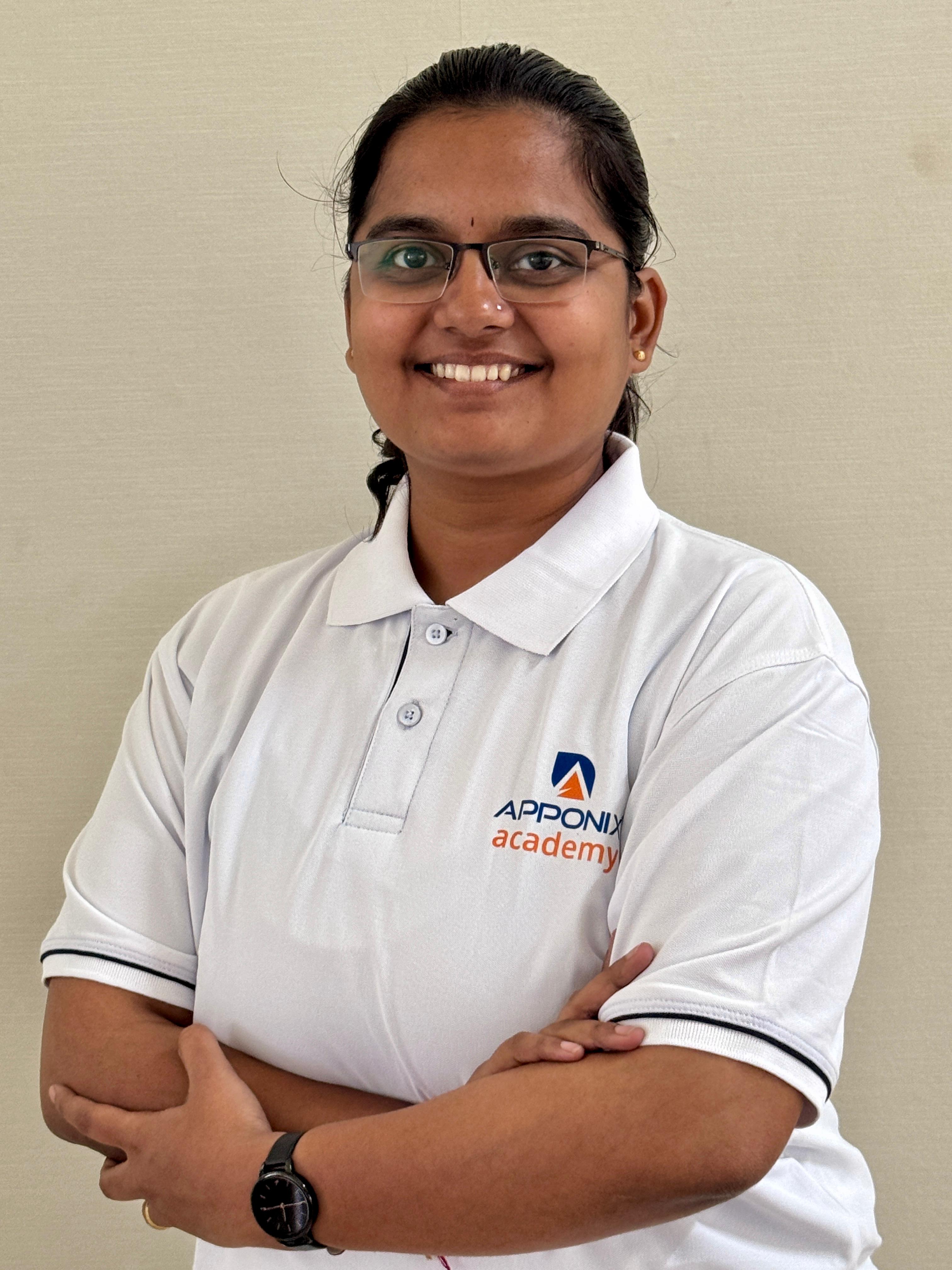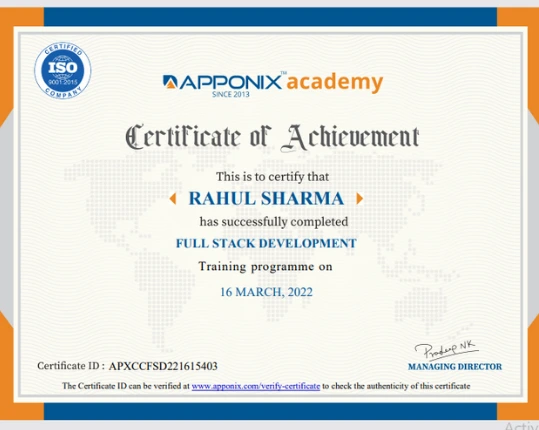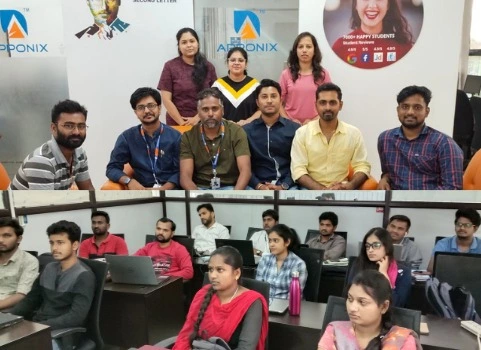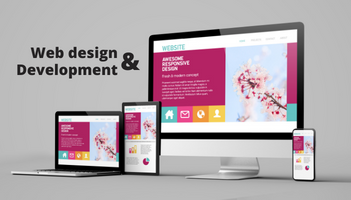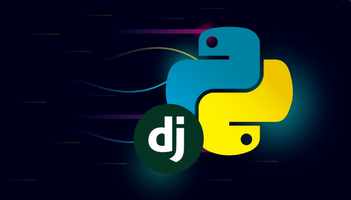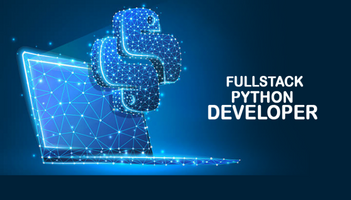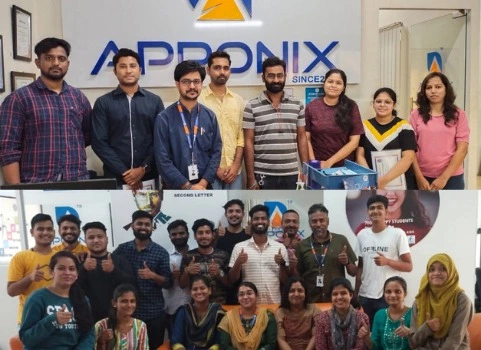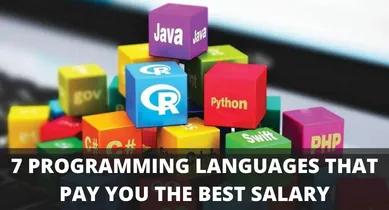Java Full Stack development Training With Guaranteed Placement Assistance
Become a full stack developer in less than 3 months. 15 Guaranteed Interview Arrangements | Learn the fundamentals and the advanced aspects of full stack development
2000+ Ratings
3000+ Happy Learners
Full Stack Java Development Videos
Skills Covered in Full Stack development Course
Training Key Features
Our Alumni Working in

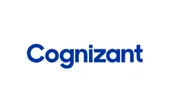



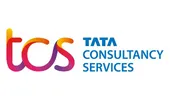






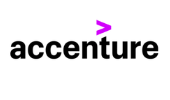


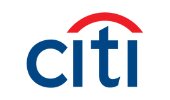




















Course Reviews
Training was excellent with good interaction and knowledge sharing is good. I joined this institute to take training for full stack course. My all over experience is very good. Thank you.
I have been placed at Techvistar IT solutions by Apponix. They were very kind and supportive in terms of getting a job. I am very happy with my new job and thank you Be practical for helping me to get this job.
I joined here for Web designing. The management is very friendly. Gauri Shankar sir handled web designing for us. Overall course was very good finally i'm able to do project on my own. They provided all the facilities that are required for us and also flexible batches.
Great place to learn full stack development. They have very supportive staff who'll help you from learning to getting jobs

Our Recent Placements
Classroom Training
Classroom Training
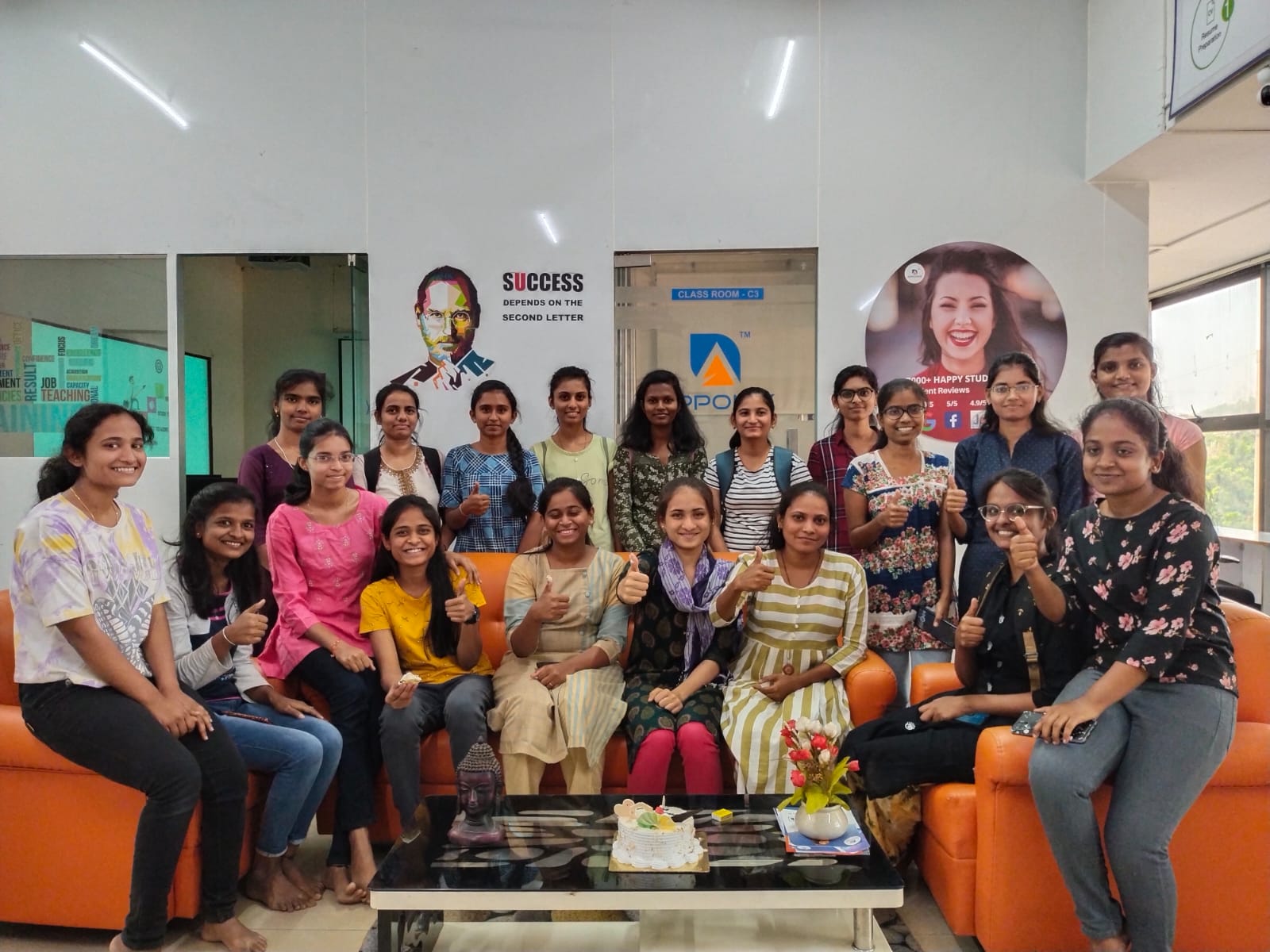
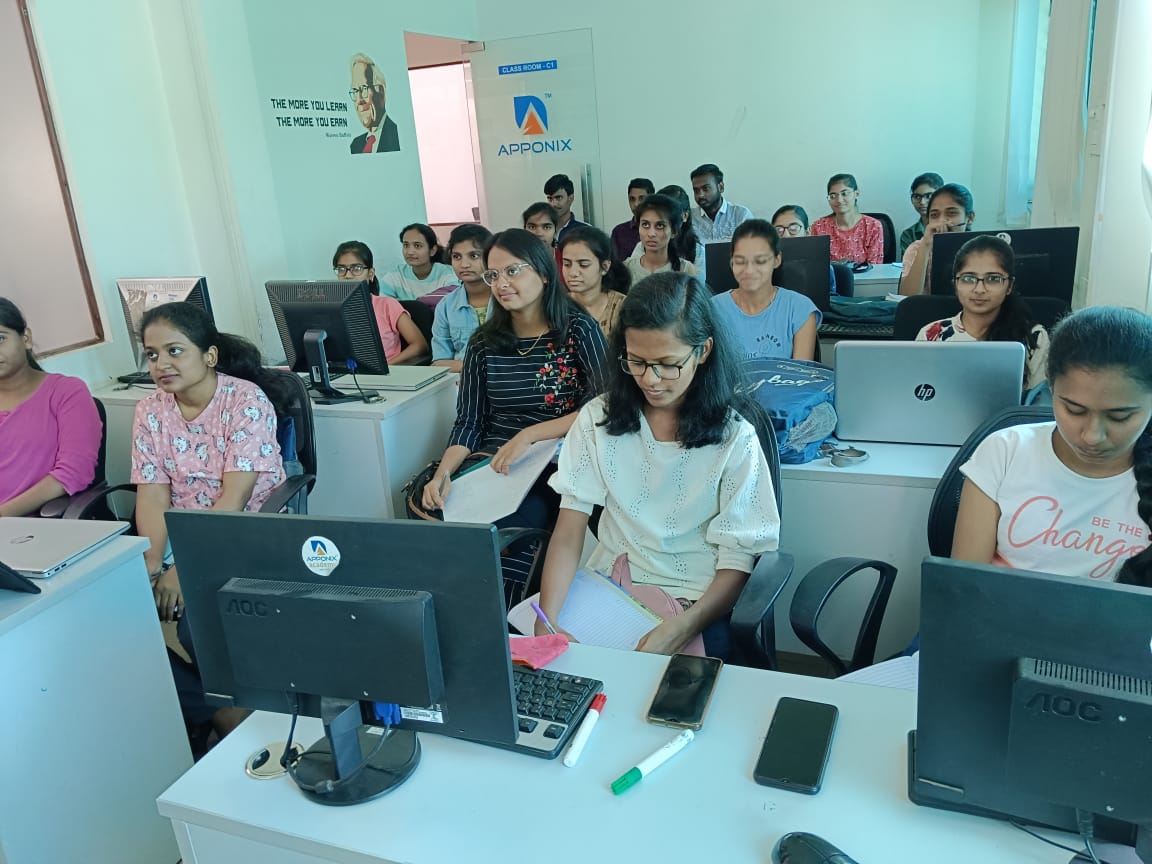
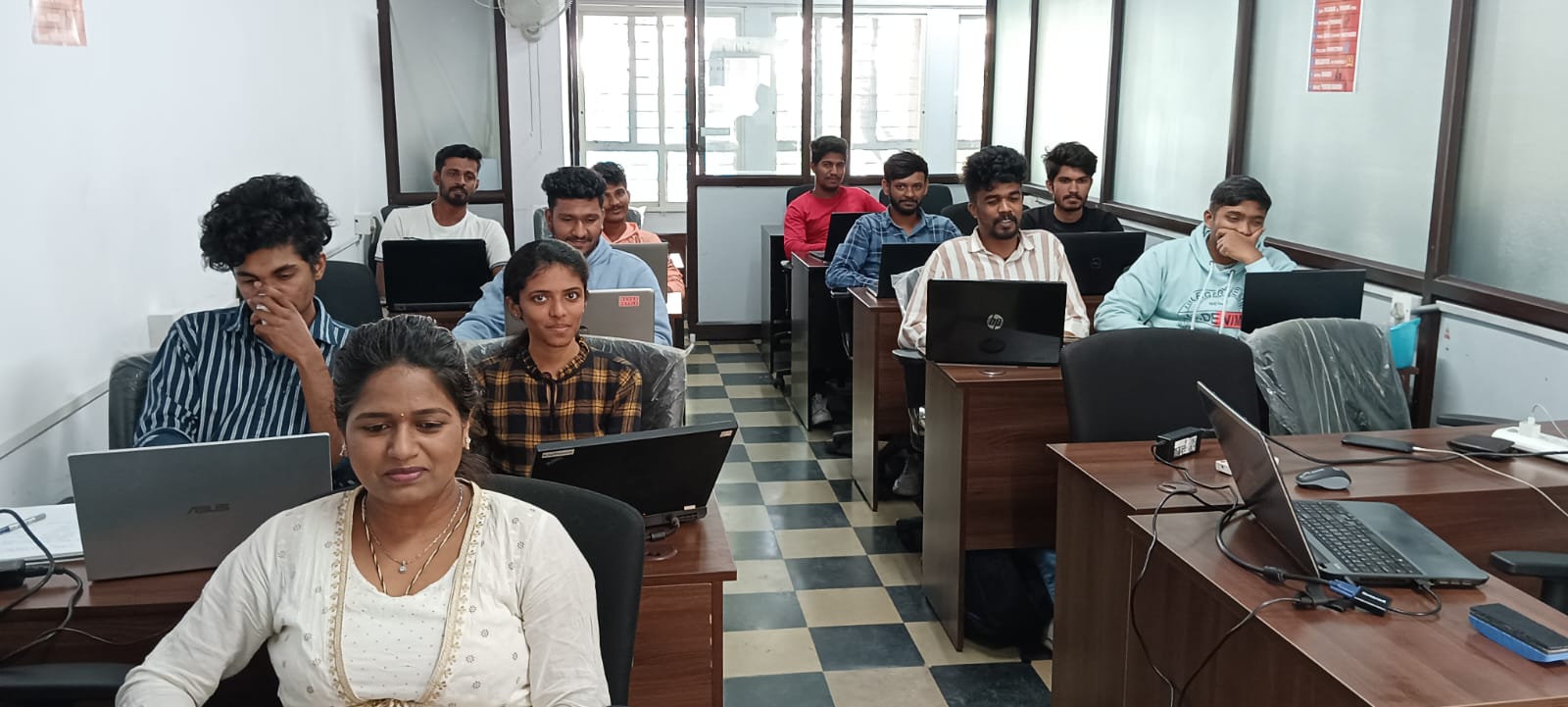
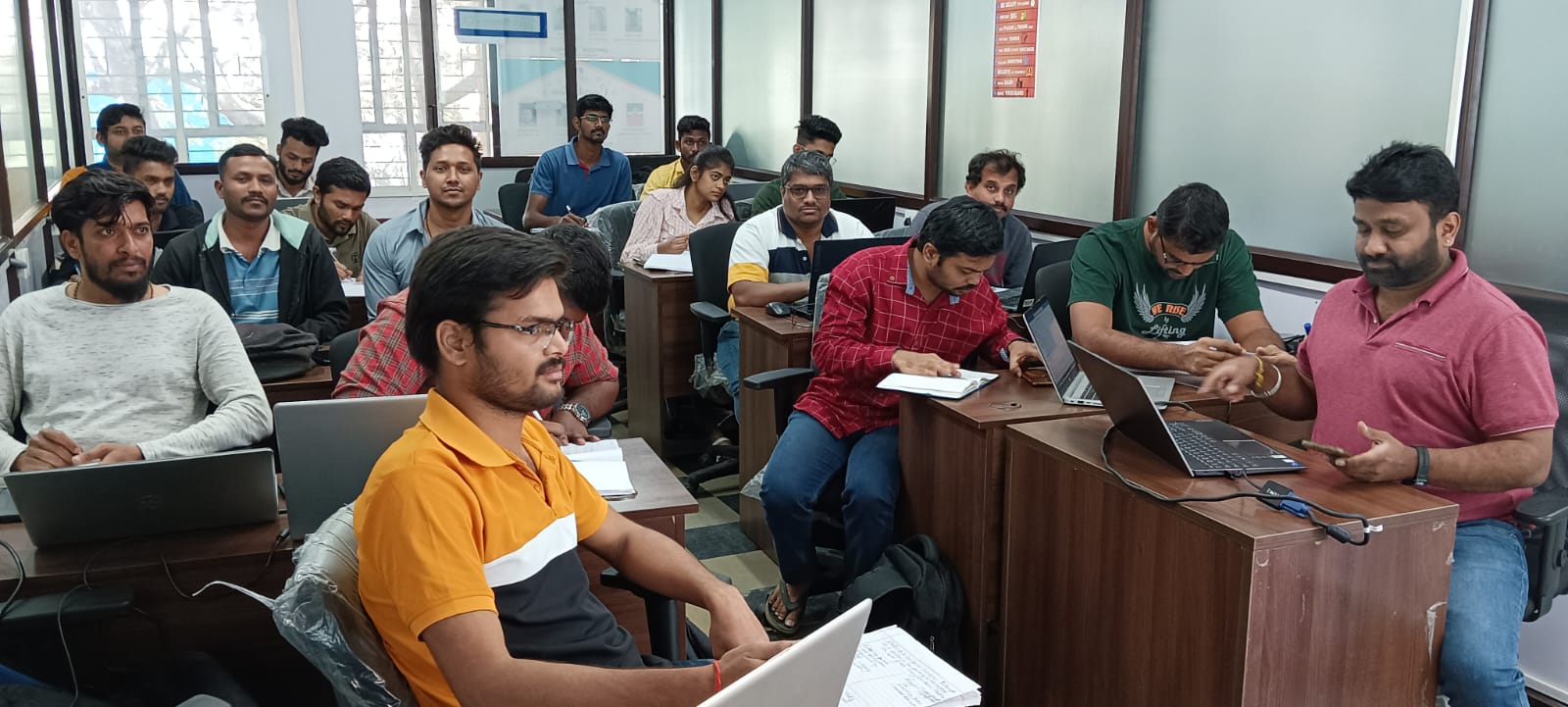
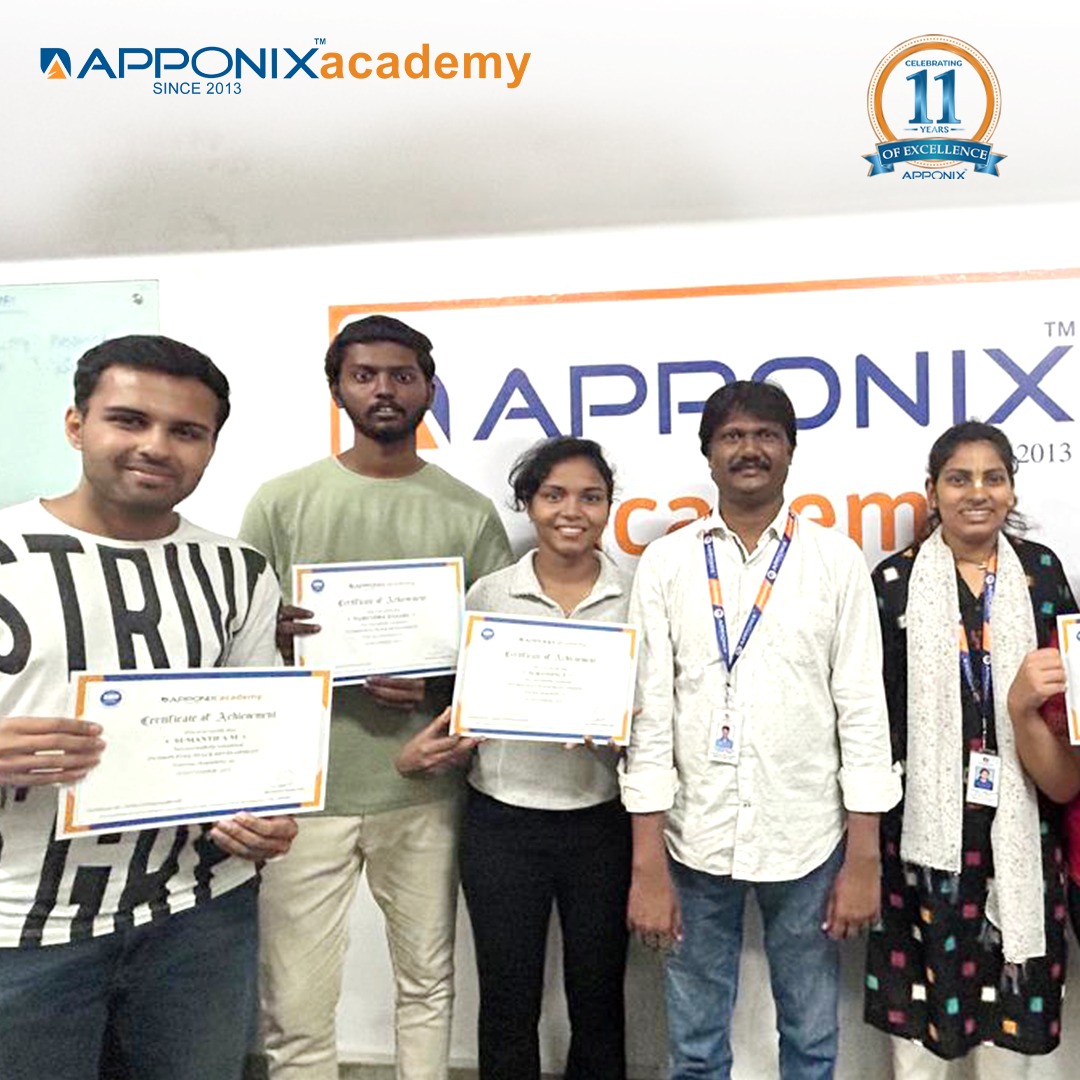
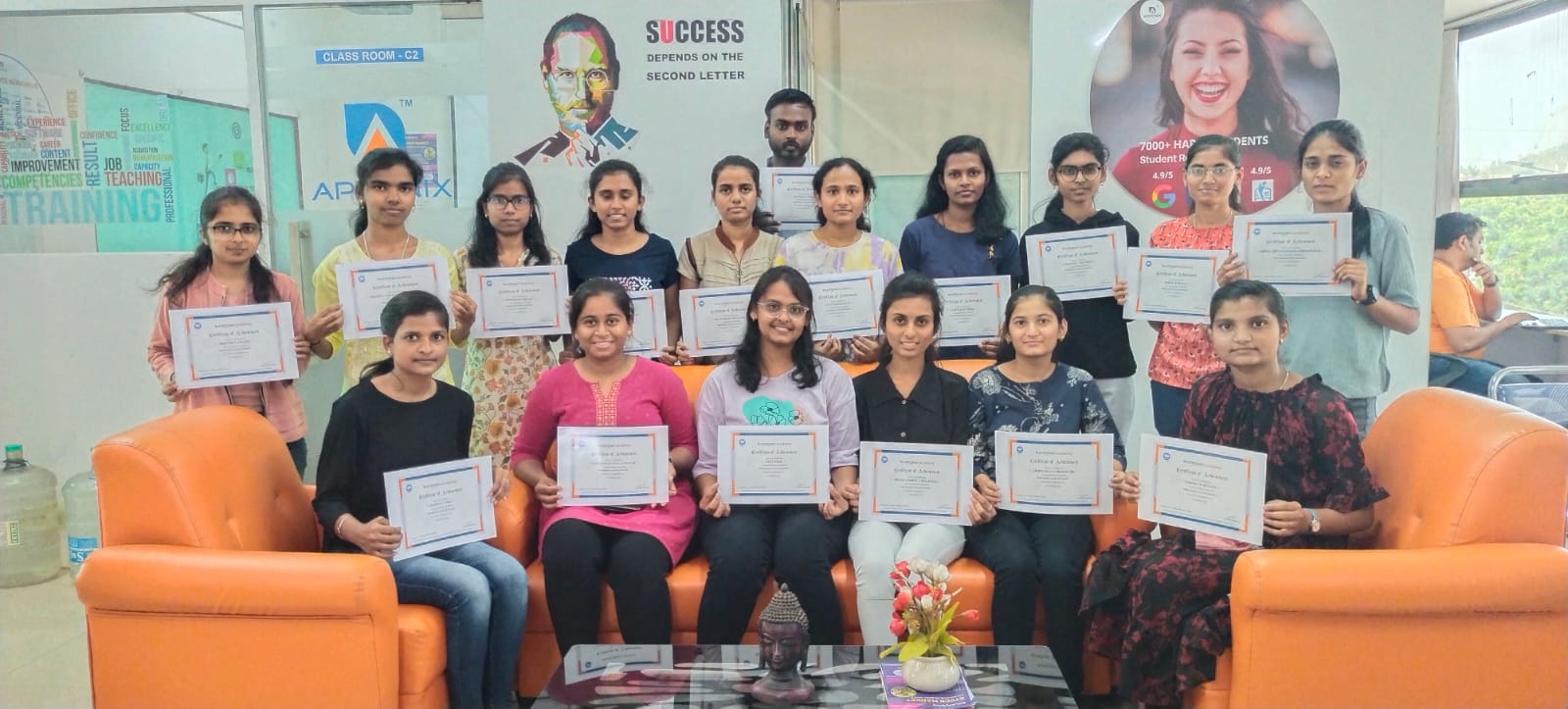
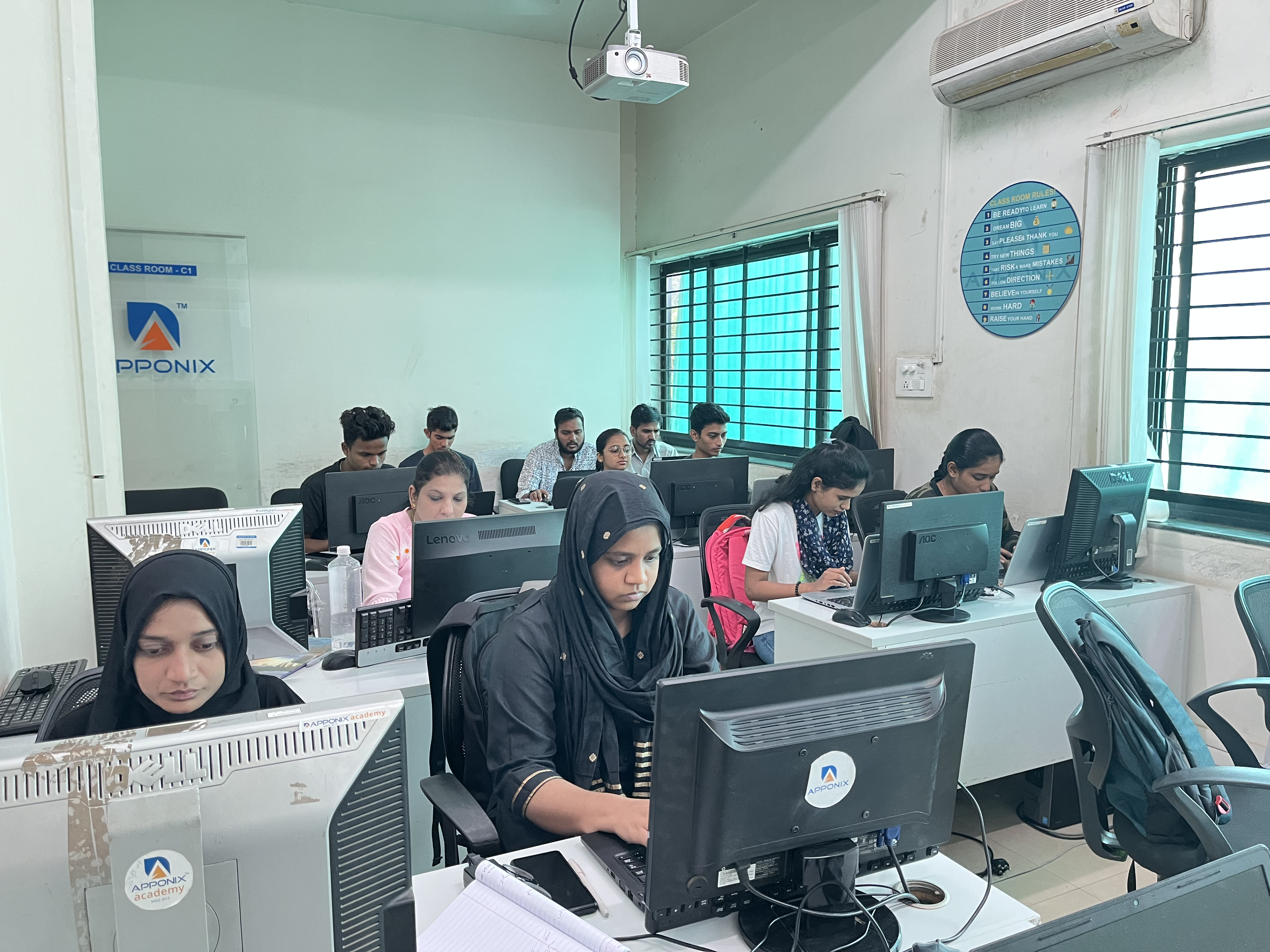
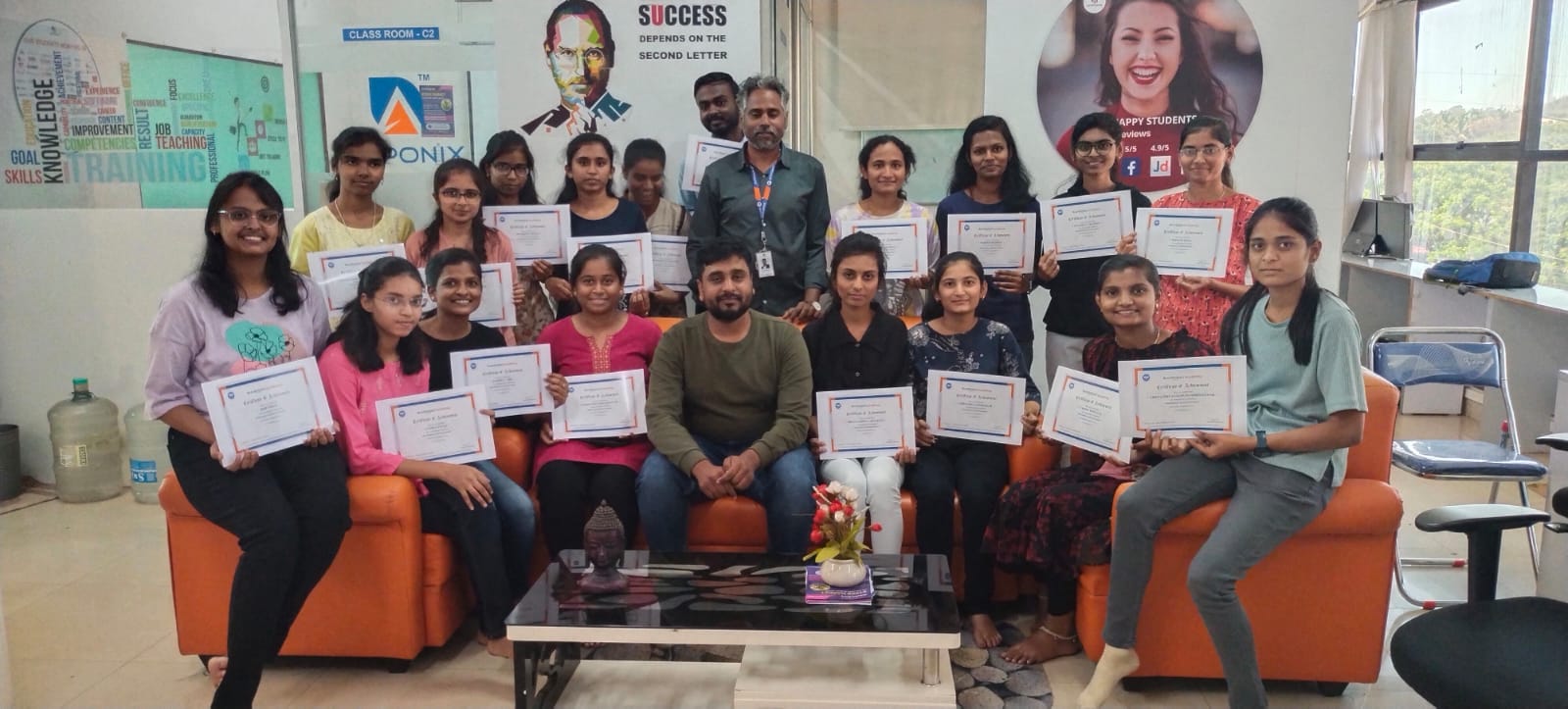
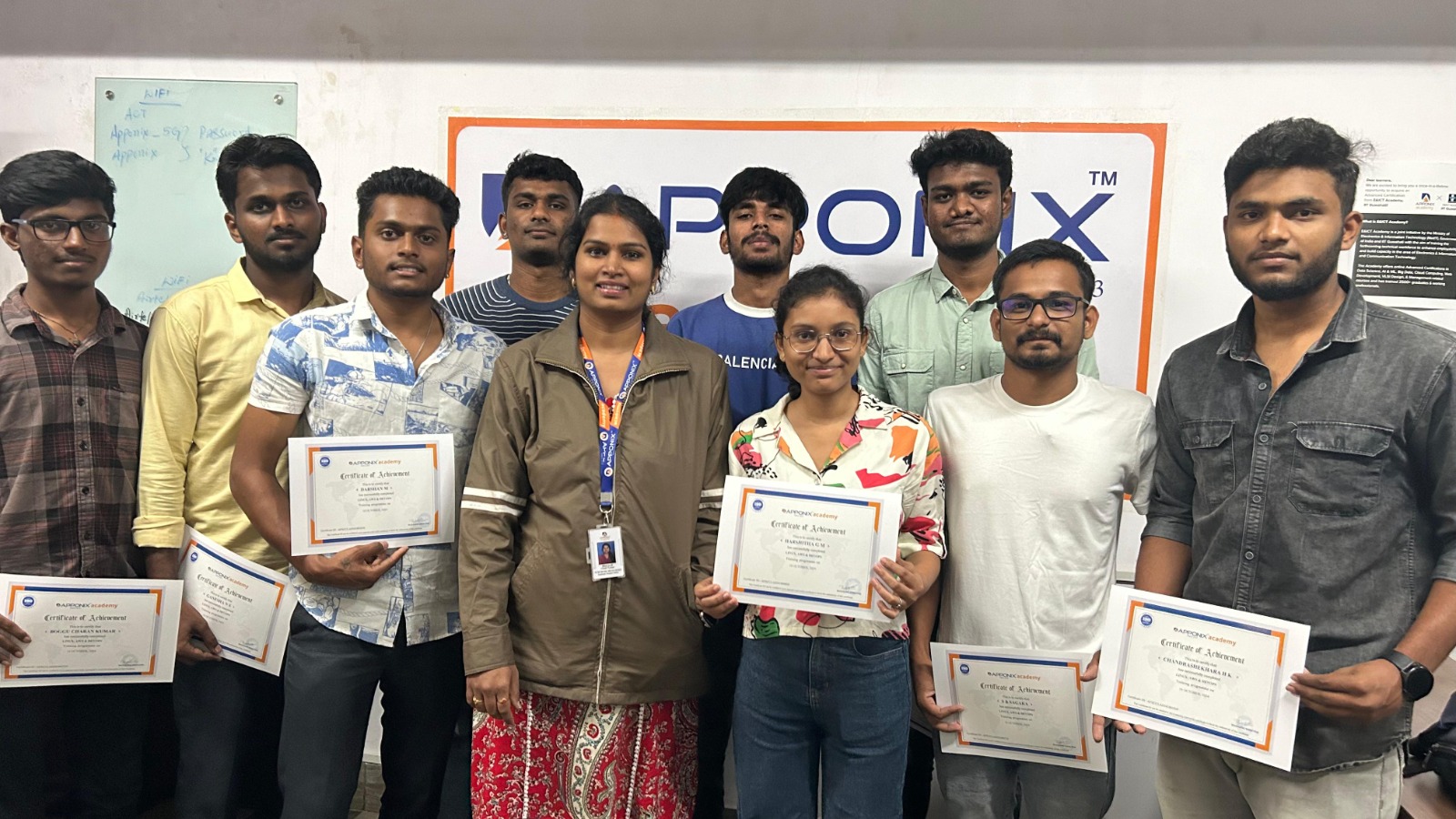
Fees & Training Options
Online Training
- Interactive Live Training Sessions
- 100 Hrs Practical Sessions
- Delivered by Working Professionals
- 1 Year Access to Recorded Sessions
- Placement assistance will be provided
- Daily 2 Hrs or Weekend 10 Hrs
- Doubt Clearing Sessions
- Regular assignments will be given and assessments will be taken.
Full Stack development Training Syllabus
Prerequisites
Candidates should have basic programming language knowledge. This course is ideal for fresher, software developers and IT professionals.
The course can also help tech entrepreneurs who want to expand the services their respective tech start-ups provide to their clientele.
Java Full Stack development Course Syllabus
- Introduction
- Different types of Applications
- Application Architecture
- Introduction to HTML
- Basic Structure of HTML
- HTML Editors
- HTML Tags
- Paragraphs, Headings and Text
- Formatting Tags
- HTML Lists
- HTML Images
- HTML Tables
- HTML Forms
- HTML Media
Introduction to CSS
Types of CSS
CSS Properties, Selectors and Values
Applying CSS to HTML
CSS colors
CSS Box Model, Margins, Padding,
Borders
CSS Text & Font Formats
CSS Advanced Topics (Effects, Animations, Shadows, Etc.,)
- Introduction to JavaScript
- How to Apply JavaScript
- Displaying Output in JavaScript
- Understanding JavaScript Syntax
- Variables & Data types Operators
- Math and String Manipulations
- Conditional and looping Statements
- Functions
- Validations
- Events
- Introduction to jQuery
- jQuery Features
- Installing jQuery
- jQuery Syntax
- jQuery Ready Function
- jQuery Selectors
- jQuery Actions
- jQuery Custom Functionality
- jQuery Libraries
- jQuery Validation
- jQuery Slideshow
- JQuery Dropdown
- jQuery UI
- jQuery Accordions
- jQuery Tabs
- jQuery Tooltips
- jQuery Autocomplete
- Typescript Introduction
- Typescript Simple and Special Types
- TypeScript Arrays
- TypeScript Tupples
- TypeScript Object Types
- TypeScript Functions
- Introduction to Bootstrap
- Bootstrap Setup
- Bootstrap Containers
- Bootstrap Grids
- Bootstrap Tables
- Bootstrap Buttons, Navbars, Alerts
- Bootstrap Carousel
- Bootstrap Forms
- Introduction to Angular
- Environment Setup
- Installing Angular CLI
- Directory Structure of Angular
- Angular Fundamentals
- Angular Building Blocks
- Angular Data Binding
- String Interpolation
- Directives and Pipes
- Forms
- Routing
- Introduction to Hosting
- Git and Github
- Creating and Merging Repositories
- Push and Pull Requests
- Java Language & Java Platform
- Java Technologies
- History of Java
- Execution Model Of Java
- First Java Program
- The JDK Directory Structure
- IDE
- Similarities between C & Java
- Differences between C & Java
- JDK
- PATH
- CLASSPATH
- What are data types?
- Int
- Float
- Char
- Double
- Boolean
- Short
- Long
- Byte
- What are Methods?
- Method Structure
- Declaration Of Methods
- Calling Of Methods
- Defining Methods
- Method Parameters Scope
- Why static methods?
- What are Control Flow Statements?
- If - Statement
- Else if Statement
- Conditional (Switch) Statements
- Arithmetic Operators
- Relational Operators
- Logical Operators
- Conditional Operators
- For Loop
- While Loop
- Do While Loop
- Break Statement
- Class & Object
- Encapsulation
- Attributes (Properties)
- Operations (Methods)Reference Vs Object
- Real-time Object Oriented Examples
- No Argument Constructor
- Parameterized Constructor
- Constructor Overloading
- Explicit Vs Implicit Default Constructor
- Private?
- Protected
- Default
- Public
- Message
- Message Passing
- Message Sender
- Message Receiver
- What is an array?
- Declaring an array
- Initializing an array
- One Dimensional array
- Two Dimensional arrays
- Multi Dimensional arrays
- Static Variables
- Static Methods
- Static Blocks
- Static Classes
- Inheritance in Java
- Use of Inheritance
- Single Inheritance
- Multi-level Inheritance
- Hierarchical Inheritance
- Hybrid Inheritance
- Method Overloading
- Method Overriding
- Super Class-Sub Class
- Abstract Classes Abstract Method
- Static Polymorphism
- Dynamic Polymorphism
- Static Vs Dynamic Binding
- Interfaces Vs Abstract Class
- Role of Interfaces in Real time
- Interfaces Inheriting from other Interfaces
- Declarative Multiple Inheritance using Interfaces
- What is a Package?
- Advantages of Packages
- Types Of Packages
- Naming Convention
- Steps For Creating Packages
- The import Statement
- Static Imports
- CLASSPATH and Import
- Defining Packages
- Scope of Packages
- String
- String Buffer
- String Handler
- Types of errors
- Need of Exception Handling
- Try, Catch, throws, Finally
- Try with resources
- Exception Hierarchy
- User Defined Exceptions
- Byte-Oriented Streams
- Character Oriented Streams
- Java.Io.File Class
- Object Serialization
- Multi-tasking Vs Multi threading
- Life Cycle of Thread
- Java.lang.thread Vs Java.lang.runnable
- Developing Multithreaded Applications
- Synchronization
- Dead-Lock
- Inter-thread communication
- Introduction To JDBC
- JDBC Architecture
- Types Of JDBC Drivers
- Creating a Database & Table
- Getting Information from Database
- Obtaining Result Set Information
- Connecting a Java Program to DB
- Prepared Statement & Statement classes in java
- Inserting, Updating & Deleting data
- what is a web application
- Java servlets
- Servlet lifecycle
- Servlet Context
- Session Management
- Building the first servlet
- Deploying the servlet
- Rest Api & Web Service Creation
- Integration with JDBC Template
- Integration with Hibernate
- What is a JSP page
- Basic HTML tags
- JSP Tag Library
- JSP Page Lifecycle
- Creating first dynamic web page
- Introduction to MVC
- MVC Architecture
- Advantages of MVC
- Three-tier architecture
- Technologies for Persistency
- Introduction to ORM
- Hibernate Architecture
- Hibernate API
- Configuration Properties
- Inheritance in Hibernate
- Component Mapping
- Collection Mapping
- One-to-many, Many-to-many Relations
- HQL (Aggregate Function ,clauses ,Criteria)
- Database Handling With Mysql
- Java Mysql Database Access
- Create Database Connection
- DML And DDL Operations With Databases
- Performing Transactions
- Handling Database Errors
- Disconnecting Database
- Database Handling With Mongodb
- Sql Vs Nosql
- Establishing A Connection
- Accessing Database
- DML And DDL Operations
+91-80505-80888
Our Top Instructors
Overview of Java Full Stack development Training Course
- Sure, here are 5 lines of overview for Full Stack Java Development certification training:
- Full Stack Java Development certification training is a comprehensive program that covers both front-end and back-end development using Java technologies.
- This training program teaches students how to build dynamic, database-driven web applications using Java, Spring, and Hibernate frameworks.
- Full Stack Java Development certification training focuses on developing skills in Java programming, HTML, CSS, JavaScript, and database design and management.
- The training program emphasizes hands-on, project-based learning to ensure that students are equipped with practical skills to build real-world applications.
- Our experienced trainers provide personalized coaching and guidance to help students succeed in the program and in their future careers as Full Stack Java developers.
Benefits of learning Full Stack Development
- Sure, here are 5 lines of overview for Full Stack Java Development certification training:
- Full Stack Java Development certification training is a comprehensive program that covers both front-end and back-end development using Java technologies.
- This training program teaches students how to build dynamic, database-driven web applications using Java, Spring, and Hibernate frameworks.
- Full Stack Java Development certification training focuses on developing skills in Java programming, HTML, CSS, JavaScript, and database design and management.
- The training program emphasizes hands-on, project-based learning to ensure that students are equipped with practical skills to build real-world applications.
- Our experienced trainers provide personalized coaching and guidance to help students succeed in the program and in their future careers as Full Stack Java developers.
Related job roles
- Full Stack Web Developer
- Full Stack Java Developer
- Front-End Developer
- Web Developer
- Back-End Developer
- Web Designer
- Full-Stack Developer
Full Stack Java Development Certification Training Course
- Full Stack Java Development is a sought-after field that involves the creation of applications, programs, and software systems using Java programming language. A Full Stack Java Developer must be skilled in front-end development, back-end development, and databases, among other things. With the ever-growing demand for Java, there is a need for skilled professionals in the field. Here is why you should consider taking a Full Stack Java Development Certification Training Course.
Why take this course?
- Career growth: Taking a Full Stack Java Development certification course will equip you with the necessary skills and knowledge to grow your career in the field of Java Development. You can take up roles such as Full Stack Developer, Java Developer, Web Developer, Software Engineer, among others.
- In-demand skills: Java is a popular programming language used by many companies globally. Learning Full Stack Java Development will give you the opportunity to gain valuable in-demand skills that many employers are looking for.
- Better pay: Full Stack Java Developers are in high demand, and companies are willing to pay a premium for their services. Taking a Full Stack Java Development certification course can help you land a high-paying job.
- Versatility: Java is a versatile programming language that can be used in various fields. With Full Stack Java Development skills, you can work in web development, mobile application development, game development, and more.
- Learning the latest technologies: Taking a Full Stack Java Development certification course will equip you with the latest tools and technologies in the field, enabling you to stay up to date with the latest trends and developments.
Advantages of taking Full Stack Java Development certification course
- Hands-on experience: A Full Stack Java Development certification course will provide you with hands-on experience in developing real-world applications using Java.
- Professional guidance: You will receive guidance from experienced trainers who will help you learn the necessary skills and answer any questions you may have.
- Industry-recognized certification: By completing a Full Stack Java Development certification course, you will earn an industry-recognized certification that can help you stand out in the job market.
- Networking opportunities: Taking a Full Stack Java Development certification course will give you the opportunity to network with other professionals in the field and build valuable connections.
Why is Full Stack Java Development more popular?
- Java is a widely-used programming language, and Full Stack Java Development is more popular due to its versatility, cross-platform compatibility, and the availability of numerous libraries and frameworks that make development easier and faster. Java is also used in many industries, including finance, healthcare, and education, which means that skilled Full Stack Java Developers are in high demand.
Job opportunities for Full Stack Java Development professionals in 2025
- With the increasing demand for Java Development, Full Stack Java Developers will continue to be in high demand in 2025. Some of the job opportunities that you can explore include Full Stack Developer, Java Developer, Web Developer, Software Engineer, and Mobile Application Developer. With a Full Stack Java Development certification, you can expect to earn an attractive salary and have many opportunities for career growth.
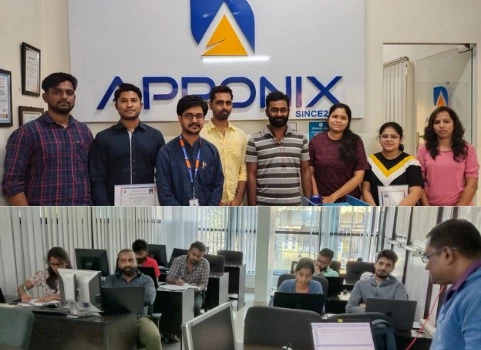
Full Stack Development Classes
Java programmer creates web and mobile applications using Java.
They use CSS, HTML, and Javascript to create interactive and engaging User Interfaces.
They handle projects pertaining to the following categories -
- Server management
- Systems engineering
- UI designing
- Web development and
- Database management.
And developer use –
- MongoDB
- Express
- Angular and
- Node (MEAN) to work on their development projects.

















